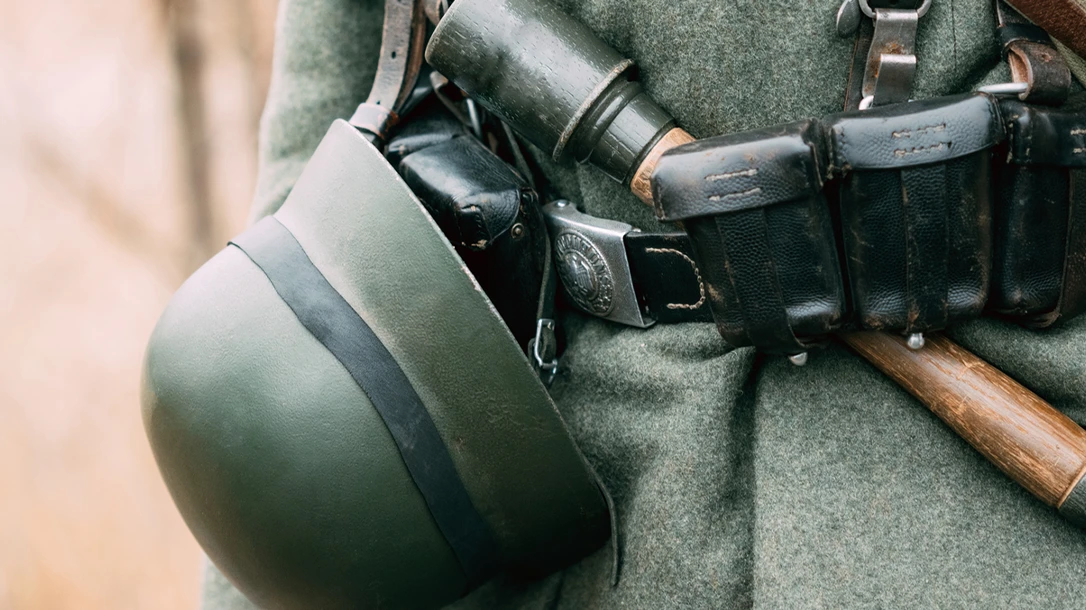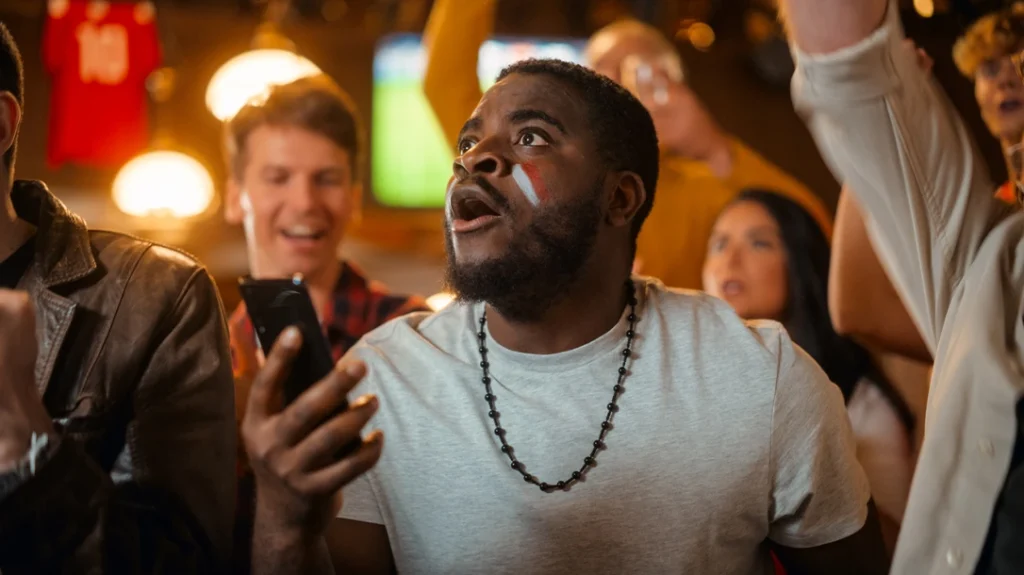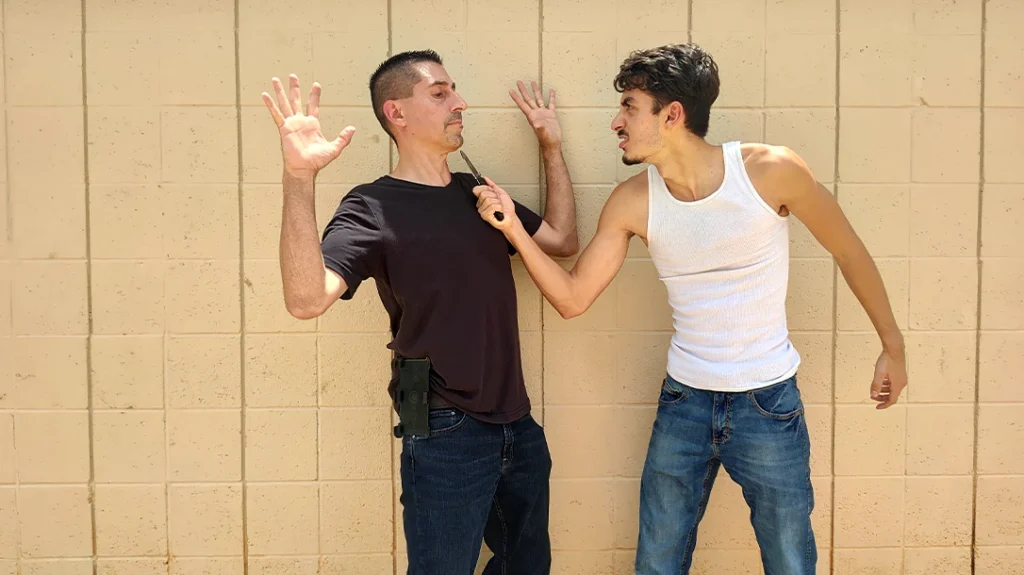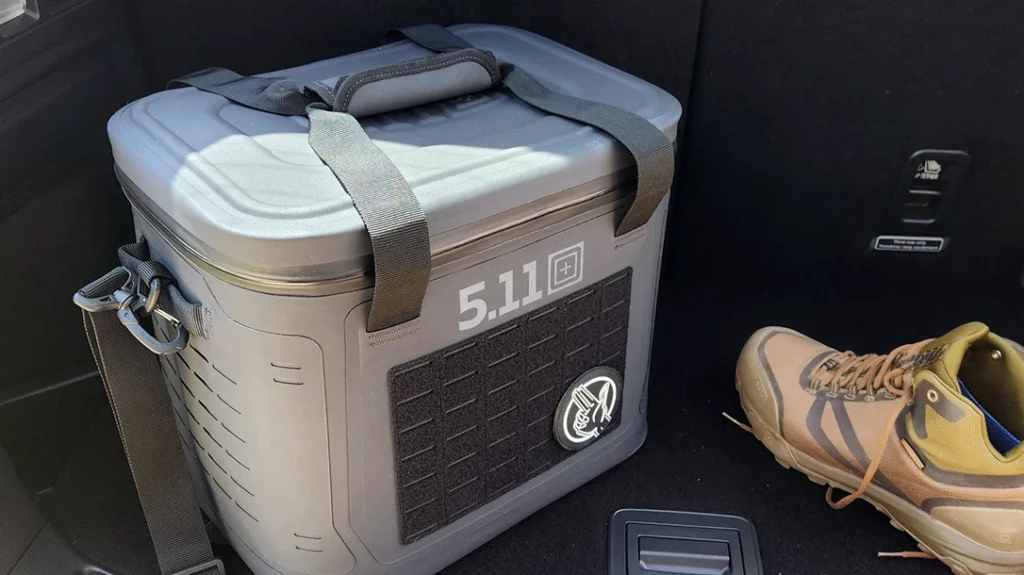Have you ever had one of those nights where you think, “Man, I probably shouldn’t be making life-altering decisions after three beers”? Well… turns out Nazi spies have those nights too.
It’s the summer of 1942. The world is at war. Hitler’s armies are blitzing their way across Europe. Japan has just sucker-punched America at Pearl Harbor. And the United States is waking up to a new reality, one where the war isn’t just something that happens over there. It’s starting to creep closer to home.
Nazi Spies Walk Among Us
American life at this time was tense. Air raid sirens are being tested in cities. Families are digging backyard bomb shelters. Kids are doing duck-and-cover drills in schools, and Rosie the Riveter is recruiting every able-bodied woman into factories to keep the war machine humming.
Advertisement — Continue Reading Below
And somewhere beneath all of that, somewhere in the cold, black waters of the Atlantic, Adolf Hitler is hatching a plan.
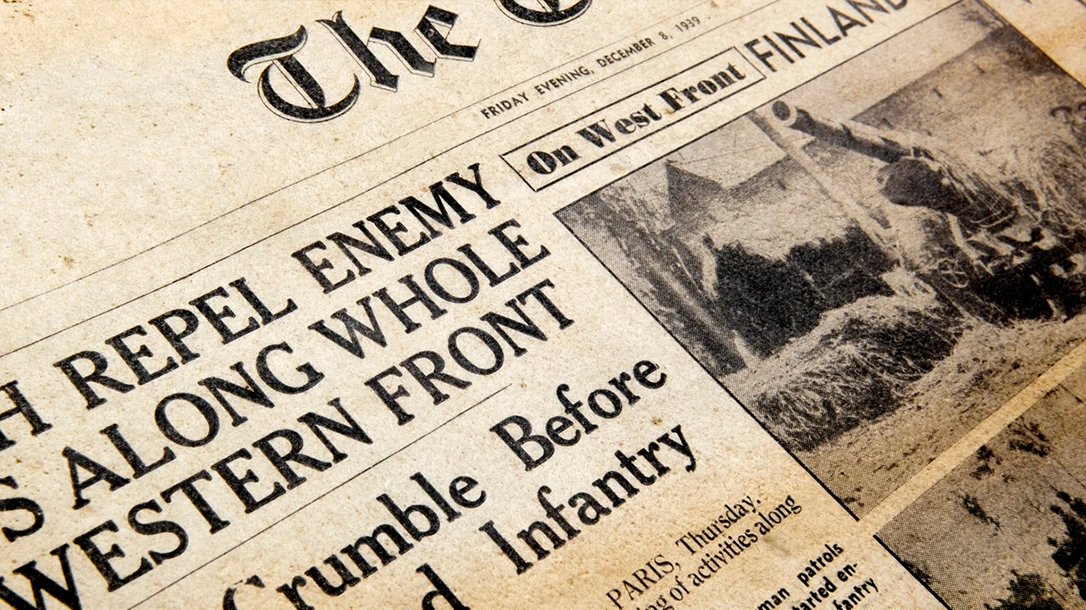
A Boat, a Beach, and a Bad Idea
Operation Pastorius was Germany’s first real attempt to bring the war to American soil. The mission was simple in theory: land-trained saboteurs on U.S. shores, blend them into American society, and systematically blow up key parts of the country’s infrastructure. Railroads, munitions plants, chemical factories, water supplies, you name it.
Advertisement — Continue Reading Below
If you’ve ever played Call of Duty and thought, “Wow, this would make a great Netflix show,” this was that… just without the execution.
On June 13, 1942, a German U-boat surfaced off the coast of Long Island. Four men dressed in German navy uniforms, because nothing says “stealth” like looking like the enemy, loaded a rubber dinghy full of cash, fake passports, explosives, and good old-fashioned arrogance, and paddled quietly toward the beach at Amagansett, New York.
The men buried their supplies in the sand and were preparing to disappear into the night when something unexpected happened: a lone Coast Guardsman, John Cullen, stumbled upon them during a routine patrol. It could have all unraveled right there.
Advertisement — Continue Reading Below
George John Dasch, the leader of the group, tried to bluff his way through the encounter, pretending to be a stranded fisherman. Then he tried a bribe. That didn’t work. Then he made threats. Also, it didn’t work. Cullen, likely scared out of his mind but somehow composed, played it cool and reported the incident.
And still, the saboteurs slipped away.
Saboteur, Traitor… Hero?
Here’s where the story takes a hard left into Coen Brothers territory.
Advertisement — Continue Reading Below
George John Dasch wasn’t your average Nazi spy. He was born in Germany, but had lived in the U.S. for years before the war, long enough to know the language, a bit about the culture, and how Americans operated. He even briefly served in the U.S. military at one point. But by the time Hitler launched Operation Pastorius, Dasch had returned to Germany and had been recruited as a saboteur.
Why him? Because he knew how to blend in. He had the American accent, the street smarts, and the credibility. On paper, he was the perfect agent. But in reality? He didn’t believe in the mission and didn’t have the stomach to carry it out.
Maybe it was a crisis of conscience. Maybe it was cowardice. Maybe it was just the creeping sense that this whole operation was more Keystone Cops than covert commandos. Either way, he didn’t want to see it through.
Advertisement — Continue Reading Below
So what did he do?
He bailed after the group slipped away from Coast Guardsman John Cullen.

Advertisement — Continue Reading Below
A Nazi Spy Tells All
He then hopped a train to Washington, D.C., checked into the Mayflower Hotel, ordered room service, and knocked back a few too many drinks. Then, somewhere between a buzz and a bold decision, he called the FBI.
Think about that. You’re the ringleader of a Nazi sabotage team, in the middle of a war, in the enemy’s capital, and you decide to turn yourself in drunk at a hotel.
At first, the FBI thought he was a lunatic. But when he opened a suitcase and dumped out $84,000 in Nazi cash, roughly $1.5 million today, they realized they weren’t dealing with a conspiracy theorist. This guy was the real deal.
Over the next several hours, Dasch sang like a canary. He named names. Gave drop points. Described targets. And thanks to his intel, the FBI was able to track down and arrest all eight saboteurs, four from the Long Island landing and four more who came ashore in Florida.
Operation Pastorius was over before it even began.
What Happens to a Traitor Who Turns?
This is where the story gets a bit more interesting.
On one hand, Dasch committed treason against his actual homeland. On the other, he helped prevent a major act of terrorism on U.S. soil. So… hero or villain?
President Franklin D. Roosevelt didn’t waste time debating. He ordered a secret military tribunal to be convened, a move not without controversy, since military tribunals bypassed the normal civilian courts.
The results were swift and brutal.
Six of the eight saboteurs were executed by electric chair within weeks of their capture. It was one of the fastest, most severe judicial actions in U.S. history.
Dasch and another man, Ernst Burger, were spared due to their cooperation. Instead, they were sentenced to lengthy prison terms and eventually deported after the war. Dasch thought he’d be welcomed back to Germany as a hero.
He was not.
He lived the rest of his life in obscurity, hated by both sides, reviled by the Nazis as a traitor, and largely ignored by the Americans he had helped.
What Operation Pastorius Teaches Us
There are a lot of takeaways here, some funny, some not so amusing. Yes, this story sounds like something that would start with, “So a Nazi walks into a hotel bar…” But underneath the absurdity is a lesson that still resonates today.
Every mission, whether it’s war, business, or life, eventually runs into the unexpected. The plan will break. People will get scared. Loyalties will be tested.
And when that happens, you find out who’s who.
You see who has the guts to stay steady under pressure and who folds. Who doubles down on integrity and who scrambles for the lifeboat. George Dasch didn’t just derail Hitler’s plan. He exposed a fundamental truth: no strategy survives without trust, and no trust survives without character.
Even the best-laid plans fall apart when people don’t have the spine to carry them through.
Character Under Pressure
In today’s world, we luckily don’t have U-boats landing on our shores, but we’ve got our own kind of pressure.
Deadlines that pile up when the day already feels too short. Financial strain that wakes you up at 3 am with your heart racing. Layoffs that gut your team and leave you wondering who’s next. Family tension that simmers quietly while you’re still expected to deliver at work. The weight of leadership when everyone’s looking to you for calm, for clarity, for answers you may not even have.
That’s the modern battlefield.
And still, the test is the same: What do you do when things get weird? When the blueprint blows up and Plan A goes out the window?
Do you lead with courage, or do you shrink back and wait for someone else to speak up?
Do you protect your team, or protect your reputation?
Do you tell the truth, even when it costs you, or do you look for a loophole and call it strategy?
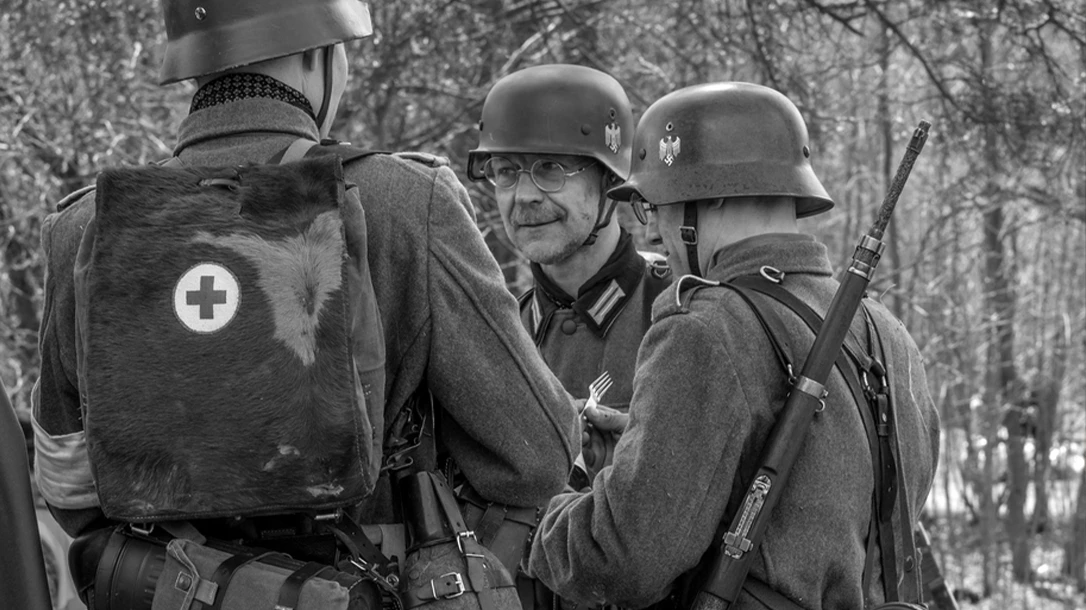
Nazi Spies or Just Rats?
Character isn’t tested in the highlight reel. It’s tested in the low light. In the conference room, when the deal is falling apart. In the kitchen, when the kid’s meltdown has drained your last ounce of patience. In the quiet moments when no one’s watching, it’d be easier to cut corners, play the victim, or shift the blame.
The people I respect most, friends, colleagues, and mentors, aren’t the ones with flawless records or polished resumes. They’re the ones who stayed standing when the storm came. The ones who remained in the room when it got uncomfortable. Who didn’t flinch when accountability knocked? Who didn’t rat out the mission just because the temperature rose?
They didn’t need the spotlight. They didn’t need applause. They just showed up, day after day, in the challenging moments. They kept their promises when it would’ve been easier not to. They held the line when others quietly slipped away.
Those are the foxhole people. The ones who know the cost of loyalty and pay it anyway. The ones you want next to you when it’s all on the line, not because they talk big when things are good, but because they don’t blink when things go bad.
And here’s the thing: You can’t fake that. You either have it or you don’t. And the only way to find out is to go through something that reveals it.
The pressure doesn’t just reveal your plan; it shows your person.
So when everything gets weird, when the stakes get high, and the room goes quiet, ask yourself the only question that really matters:
Am I the person they want in the foxhole?
Because if not… It’s never too late to become him.
A Complete Bust
Operation Pastorius didn’t just fail; it never even got off the ground. All thanks to one man who couldn’t stomach the mission, got drunk in a hotel, and decided to flip on the Nazis.
It’s a story that sounds ridiculous, and maybe it is. But it’s also one of character, conviction, and the ripple effect of one very human moment under pressure.
And maybe that’s the lesson. You don’t have to be perfect. But when the stakes are high and the room gets quiet, you’d better know what kind of person you are.
Because your legacy doesn’t hinge on how you act when the plan is working.
It’s how you act when it’s not.
